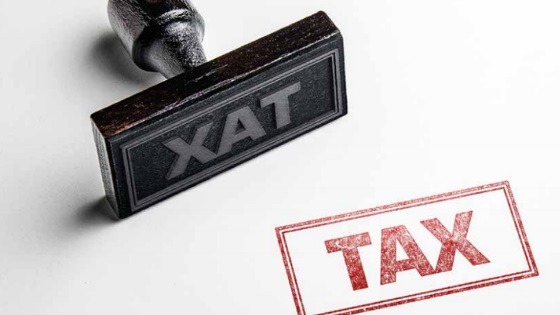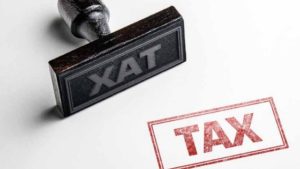Boosting Investment Returns
https://www.ellisbates.com/wp-content/uploads/2019/10/Boosting-investment-returns.jpg 560 315 Jess Easby Jess Easby https://secure.gravatar.com/avatar/0e2a278e0eef1defdd7ee9d0ae7bb398?s=96&d=mm&r=gOut of adversity comes opportunity
Under new Prime Minister Boris Johnson, the Government has toughened its stance on a no-deal Brexit, which it has said is ‘now a very real prospect’. 23 June marked three years since the UK voted to leave the European Union.
Three years on from the 2016 referendum, and with ongoing political wrangling, the eventual outcome of Brexit is still uncertain. Brexit-related uncertainty and the challenging domestic backdrop mean investors need to be smarter about how they invest, which is why it is essential to obtain professional financial advice. As Benjamin Franklin once said, ‘Out of adversity comes opportunity.’
Reflecting your future capital or income needs
As the uncertainty around Brexit continues, the need for asset allocation has never been more important. This is because most investment returns are explained by asset allocation, which means it matters more about how you divide up your pot than it does whether you pick the best or even worst funds in each of those asset classes.
Uncertainty is a fact of life when it comes to investing and should not be a reason to put off investing. The important thing to remember is to not let your investment decisions be driven by your emotions. This means that your overall asset allocation needs to reflect your future capital or income needs, the timescales before those capital sums are required, the level of income sought, and the amount of risk you can tolerate. Investing is all about risk and return.
Individual attitude towards risk
Not only does asset allocation naturally spread risk, but it can also help you to boost your returns while maintaining, or even lowering, the level of risk of your portfolio. Most rational investors would prefer to maximise their returns, but every investor has their own individual attitude towards risk.
Determining what portion of your portfolio should be invested into each asset class is called ‘asset allocation’ and is the process of dividing your investment/s between different assets. Portfolios can incorporate a wide range of different assets, all of which have their own characteristics like cash, bonds, equities (shares in companies) and property.
Not putting all your eggs in one basket
The idea behind allocating your money between different assets is to spread risk through diversification and to understand these characteristics and their implications on how a portfolio will perform in different conditions – the idea of not putting all your eggs in one basket.
Investments can go down as well as up, and these ups and downs can depend on the assets you’re invested in and how the markets are performing. It’s a natural part of investing. If we could look into the future, there would be
no need to diversify our investments. We could merely choose a date when we needed our money back, then select the investment that would provide the highest return to that date.
Combining a number of different investments
Moreover, the potential returns available from different kinds of investment, and the risks involved, change over time as a result of economic, political and regulatory developments, as well as a host of other factors. Diversification helps to address this uncertainty by combining a number of different investments.
When putting together a portfolio, there are a number of asset classes, or types of investments, that can be combined in different ways. The starting point is cash – and the aim of employing the other asset classes is to achieve a better return than could be achieved by leaving all of the investment on deposit.
Cash
The most common types of cash investments are bank and building society savings accounts and money market funds (investment vehicles that invest in securities such as short-term bonds to enable institutions and larger personal investors to invest cash for the short term).
Money held in the bank is arguably more secure than any of the other asset classes, but it is also likely to provide the poorest return over the long term. Indeed, with inflation currently above the level of interest provided by many accounts, the real value of cash held on deposit is falling.
Your money could be eroded by the effects of inflation and tax. For example, if your account pays 5% but inflation is running at 2%, you are only making 3% in real terms. If your savings are taxed, that return will be reduced even further.
Bonds
Bonds are effectively IOUs issued by governments or companies. In return for your initial investment, the issuer pays a pre-agreed regular return (the ‘coupon’) for a fixed term, at the end of which it agrees to return your initial investment. Depending on the financial strength of the issuer, bonds can be very low or relatively high-risk, and the level of interest paid varies accordingly, with higher-risk issuers needing to offer more attractive coupons to attract investment.
As long as the issuer is still solvent at the time the bond matures, investors get back the initial value of the bond. However, during the life of the bond, its price will fluctuate to take account of a
number of factors, including:
- Interest rates – as cash is an alternative lower-risk investment, the value of government bonds is particularly affected by changes in interest rates. Rising base rates will tend to lead to lower government bond prices, and vice versa
- Inflation expectations – the coupons paid by the majority of bonds do not change over time. Therefore, high inflation reduces the real value of future coupon payments, making bonds less attractive and driving their prices lower
- Credit quality – the ability of the issuer to pay regular coupons and redeem the bonds at maturity is a key consideration for bond investors. Higher-risk bonds such as corporate bonds are susceptible to changes in the perceived creditworthiness of the issuer
Equities
Equities, or shares in companies, are regarded as riskier investments than bonds, but they also tend to produce superior returns over the long term. They are riskier because, in the event of a company getting into financial difficulty, bond holders rank ahead of equity holders when the remaining cash is distributed.
However, their superior long-term returns come from the fact that, unlike a bond which matures at the same price at which it was issued, share prices can rise dramatically as a company grows.
Returns from equities are made up of changes in the share price and, in some cases, dividends paid by the company to its investors. Share prices fluctuate constantly as a result of factors such as:
- Company profits – by buying shares, you are effectively investing in the future profitability of a company, so the operating outlook for the business is of paramount importance. Higher profits are likely to lead to a higher share price and/or increased dividends, whereas sustained losses could place the dividend or even the long-term viability of the business in jeopardy
- Economic background – companies perform best in an environment of healthy economic growth, modest inflation and low interest rates. A poor outlook for growth could suggest waning demand for the company’s products or
services. High inflation could impact companies in the form of increased input prices, although in some cases companies may be able to pass this on to consumers. Rising interest rates could put strain on companies that have borrowed heavily to grow the business - Investor sentiment – as higher-risk assets, equities are susceptible to changes in investor sentiment. Deterioration in risk appetite normally sees share prices fall, while a turn to positive sentiment can see equity markets rise sharply
Property
In investment terms, property normally means commercial real estate – offices, warehouses, retail units and the like. Unlike the assets we have mentioned so far, properties are unique – only one fund can own a particular office building or shop. The performance of these assets can sometimes be dominated by changes in capital values. These unusually dramatic moves in capital value illustrate another of property’s key characteristics, namely its relative illiquidity compared to equities or bonds.
Buying equities or bonds is normally a relatively quick and inexpensive process, but property investing involves considerable valuation and legal involvement. The more normal state of affairs is for rental income to be the main driver of commercial property returns. Owners of property can enhance the income potential and capital value of their assets by undertaking refurbishment work or other improvements. Indeed, without such work, property can quickly become uncompetitive and run down. When managed properly, the relatively stable nature of property’s income return is key to its appeal for investors.
Diversification
If we could see into the future, there would be no need to diversify our investments. We could merely choose a date when we needed our money back, then select the investment that would provide the highest return to that date. It might be a company share, or a bond, or gold, or any other kind of asset. The problem is that we do not have the gift of foresight. Diversification helps to address this uncertainty by combining a number of different investments.
In order to maximise the performance potential of a diversified portfolio, managers actively change the mix of assets they hold to reflect the prevailing market conditions. These changes can be made at a number of levels, including the overall asset mix, the target markets within each asset class and the risk profile of underlying funds within markets. As a rule, an environment of positive or recovering economic growth and healthy risk appetite would be likely to prompt an increased weighting in equities and a lower exposure to bonds. Within these baskets of assets, the manager might also move into more aggressive portfolios when markets are doing well and more cautious ones when conditions are more difficult. Geographical factors such as local economic growth, interest rates and the political background will also affect the weighting between markets within equities and bonds.
In the underlying portfolios, managers will normally adopt a more defensive positioning when risk appetite is low. For example, in equities, they might have higher weightings in large companies operating in parts of the market that are less reliant on robust economic growth. Conversely, when risk appetite is abundant, underlying portfolios will tend to raise their exposure to more economically sensitive parts of the market and to smaller companies.
Time to do more with your money?
Whatever your level of confidence, we can help you make better-informed investment decisions. We’ll demystify a complex subject and provide professional advice to enable you to build an investment portfolio that meets
your investment goals, whatever your risk level. Please contact us to discover your options.
Information is based on our current understanding of taxation legislation and regulations. Any levels and bases of, and reliefs from, taxation are subject to change and depend on your individual circumstances. The value of investments and income from them may go down, you may not get back the original amount invested. Past performance is not a reliable indicator of future performance.








 Welcome to our Guide to Life Insurance Protection. It’s not easy to think about how you would secure your family’s future if you were no longer around. Understandably, we would rather not think of the time when we’re no longer around. But it’s important to protect the things that really matter – like our loved ones, home and lifestyle – in case the unexpected happens.
Welcome to our Guide to Life Insurance Protection. It’s not easy to think about how you would secure your family’s future if you were no longer around. Understandably, we would rather not think of the time when we’re no longer around. But it’s important to protect the things that really matter – like our loved ones, home and lifestyle – in case the unexpected happens.


 Making decisions on your behalf during your lifetime
Making decisions on your behalf during your lifetime

 Investors
Investors





 Q: What is a Help to Buy ISA?
Q: What is a Help to Buy ISA?